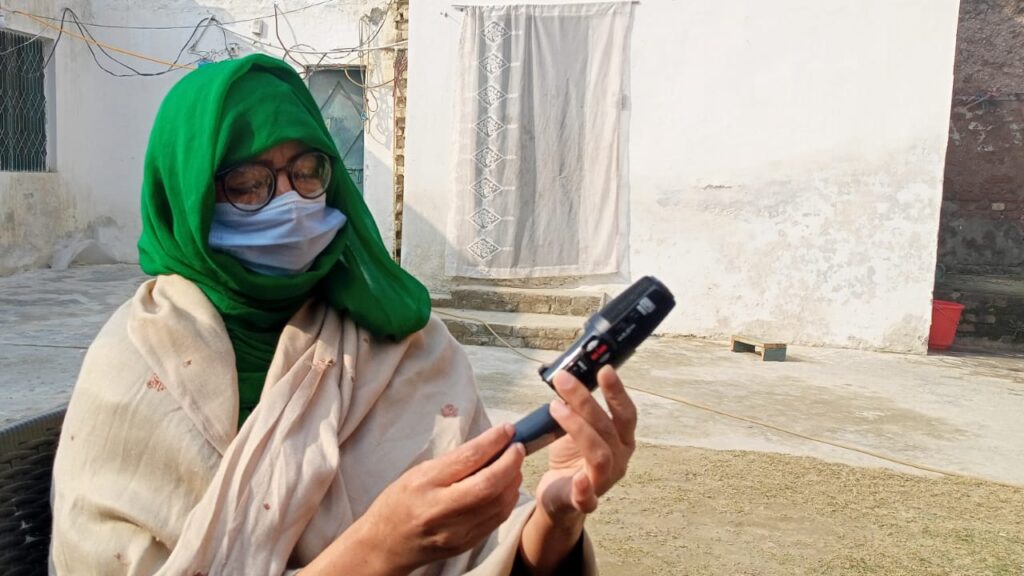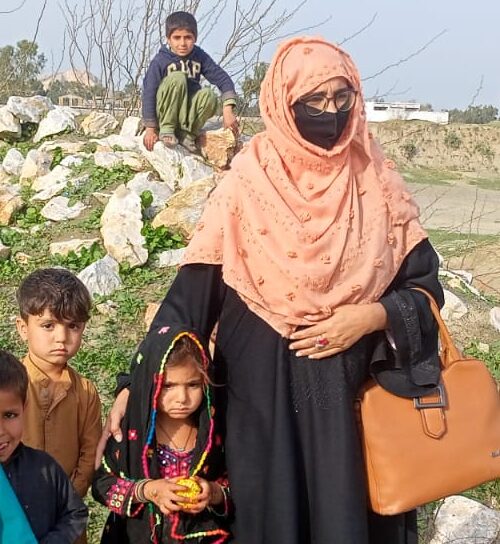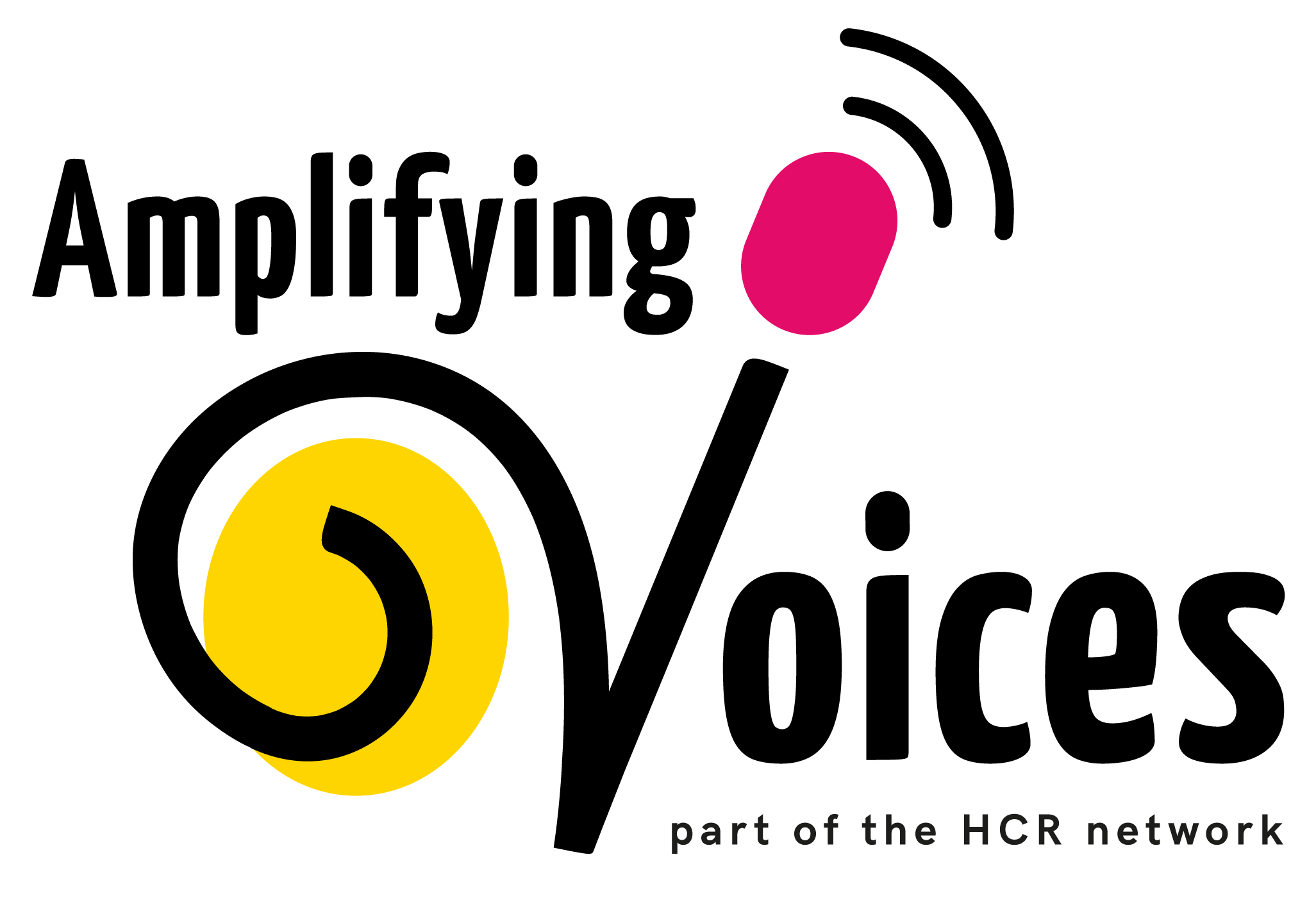
Listen – then listen again
In a village in Pakistan, we were recently reminded why it is so important to listen, then listen again and then keep listening when engaging with communities. Through a process of iterative listening, Amplifying Voices Pakistan learned that, while the men of a community wanted the wellbeing of women in their community to improve, the men’s ideas for how to make that happen were different from the priorities voiced by the women themselves.
Hazeen from Amplifying Voices Pakistan visited some villages near Nowshera with local contact, Zafar, who is leading the Community Media Power project. Following early community consultations, they heard that access to clean water is a priority for several of these villages. The male participants initially said that for change to come, there needed to be change at the top political levels, in particular the removal of corruption. After Hazeen encouraged the men to think more about issues that were closer to their circles of influence, they talked about the need for better hygiene and health, for water and electricity, about poverty. They said that access to clean water is a key issue that could greatly improve local health, especially among women and children.
At that time, Hazeen and Zafar had asked to hear from women in the community, but cultural norms meant that the women did not want to speak to unknown men publicly. More recently, a community leader who is very supportive of the project, introduced Hazeen and Zafar to a female social worker from the area. Before the media project came along, Gul had been going door to door, mobilising people to get vaccinated for polio. She also started a small project working with women to give vocational training. However, the project stopped when the roof fell in on the training room after heavy rains. The community knows her and trusts her, and she still wanted to work with these villages. So, she agreed to go with Zafar to the villages and do some interviews.
When Zafar first took Gul to help with interviews, they had prepared interviews about clean water and hygiene. And this is an issue that matters to women too, so they had plenty to say. Gul was a natural at interviewing so Hazeen encouraged Zafar to ask her to become more involved in developing the community-centred media project. She agreed and is really keen to help marginalised people by using radio. She also has the support of her family which is so important in this cultural context.
Gul joined Hazeen and Zafar for a training day with only women from the community, and they did another community mapping exercise. The outcome revealed the importance of listening to both groups directly, even though the men were trying to speak with the interests of women in mind. The number one issue that the women highlighted was education for women and girls, and related to this, when parents are arranging marriages, girls said they wanted their parents also to consider whether husband is educated.

Listening to different perspectives, nr Nowshera, 2022
The topic of women’s education did come up in the original consultation which only men had attended, but it was lower priority. One of the elders said “Pathan men are like men everywhere. They love their daughters very much and want the best for them – would do anything for them”. He went on to say that they also find it hard to give them access to education because schools or colleges are far away from the home, and they feel it is too risky to allow their daughters to travel across town to get there. There was a sense that those risks put this topic outside their perceived field of influence.
However, it was clearly a top priority for the women who met with Gul, and they decided this would be the topic for a pilot for series of women’s radio programmes. Zafar taught Gul to use the Zoom voice recorder so she could collect content without him being present and Hazeen taught her to write a script for a programme and prepare for interviews.
The pilot programme, called Bright Home, has interviews with community members (girls and parents of girls). It will also have an interview with a school principal about education for girls. The interviews cover issues such as access to schools as well as exploring the issue of transport and distance from the girls’ homes to the nearest schools. Gul will also be supported to develop her vocational skills programme in partnership with community members. The vocational programme will be called SHE (Skills, Health, Education).
A 2015 study among men in north-western Pakistan, found that the men’s attitudes to women’s participation in community and education are at times contradictory, but heavily influenced by the cutural norms of the Pakhtunwali tribal code. The author recommends that “Understanding men’s views is a starting point. The next step is to engage men in the collective struggle for gender justice.” Community-centred media creates opportunities for men to engage by listening directly to the voices of women. Iterative listening can be a far-reaching process.
For more about Amplifying Voices’ listening approach to community engagement see Its a Ting thing
